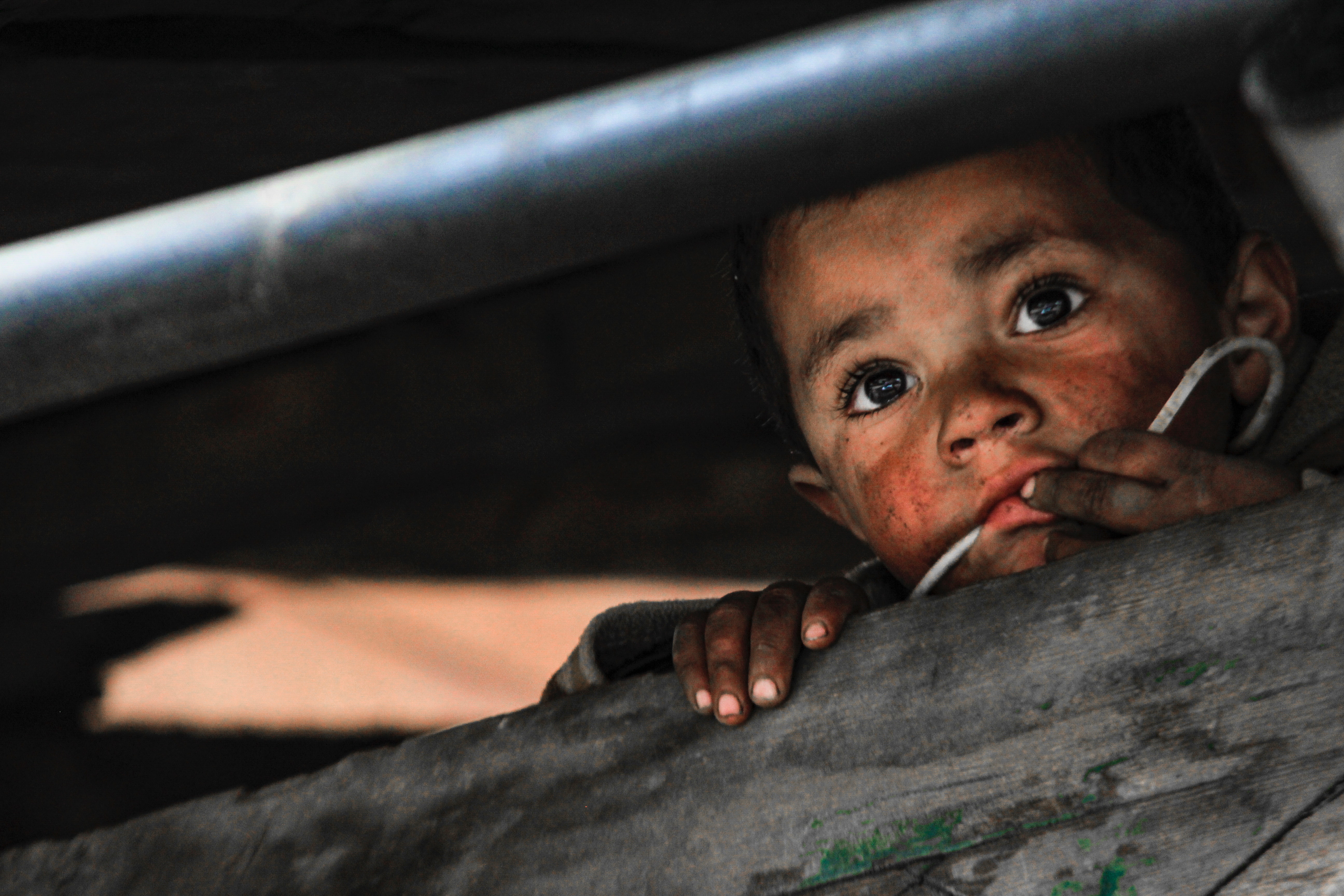Hello Children,
You probably vividly recall earlier this year when you unsuccessfully tried to cross the Mexican/American border with one or both of your parents. You probably also recall that you did not understand the policy established by the United States that separates migrant children from their parents crossing the border illegally. As a child, all you could grasp was that you had left behind everything familiar, and the only sense of security and safety accompanying you along the treacherous journey was in being loved and cared for by your parents.
You likely didn’t understand many of the big and unfamiliar words, such as “undocumented” and “zero tolerance” being spoken when your parent(s) was whisked away by government officials and sent to jail to be criminally prosecuted. What you did understand, very deeply and painfully, was the aching feelings of being taken from your parents and feeling abandoned, confused and scared.
In the history of the United States, this will likely be looked back at as a “one-off” type of event. It will hopefully end before too long. But for you, it probably involved a stay in government facilities or day care until you could be sent to live with a family member. Every moment of every day was consumed by uncertainty of what would become of you, if you’d see your loved ones again and being overwhelmed by your body’s stress response. A life-altering and traumatic experience at such a young age can negatively influence your view of the world for a lifetime.
Bad things happen to good people and bad things have happened to you. Your personal history is forever changed, but it’s not all doom and gloom. Adversity happens to everyone, not everyone will know how to cope with traumatic experiences. As a child, you have a limited understanding of the adult world of politics, refugees and escaping unsafe homelands. As a child you have little life experiences that would enable you to have healthy coping skills.
Being prepared is the best defense against any future challenges you may experience as a result of this harrowing event. I have identified a few emotional roadblocks you may encounter over the coming years with suggestions on how to successfully navigate them.
1. Believing The World Is Fundamentally Unsafe
A vital developmental lesson for you is to learn that your world is safe. You, like all children around the world, need to realize that your basic needs will be met. It helps you learn to trust others and grow up to be independent. Alternatively, when children experience an early trauma in their lives they run the risk of becoming guarded, mistrustful and defensive as adults.
If unresolved, traumatic childhood experiences can show up later in your life. Memories of being abandoned can be triggered by current situations, such as someone leaving the family unit or being overly critical. Instead of viewing the situation for what it is, you may be inclined to create stories in your head about not being good enough, or create distorted beliefs that the world is deceptive and that it is not safe to trust others.
Found in or outside of religion, spirituality is a very personal, subjective experience that can provide you with the inner strength in life to move through adversity, offering you direction when you are lost so that you can feel safe moving forward in your life. It can give you comfort and hope for a better tomorrow.
2. Low Self-Esteem
Feelings of low self-esteem can result from childhood experiences, such as prolonged separation from parents. If you don’t do something about low self-esteem, it can keep kicking you straight through adulthood with health issues, and create negative life experiences such as marital, career and health matters.
Raise your self-esteem by learning to trust yourself. Practice self-kindness by appreciating the strengths you have and accepting your weaknesses as being an imperfect human being, like the rest of us. Taking care of yourself in this manner will help modify your self-concept and develop a healthy, positive sense of yourself.
We are hard-wired to be connected to others, so surround yourself with a strong support system. Your support system can be there to help you reduce barriers along the way by offering you much needed resources, additional viewpoints and reminding you that you are not alone. The stability your social network offers can help you to traverse any bumpy terrain because they help you not just fix what is broken but strengthen what is already working well.
3. Ambivalence About Your Heritage
As a child, being stopped by border authorities, questioned, separated from parents and having legal hearings as a result of your heritage and border crossing may result in your learning to associate being different as being bad or flawed.
Please be careful, because these feelings can result in your experiencing long-term social and emotional challenges. Separation of parents and children, particularly when done without explanation and preparation, can leave children to feel that they are being punished. This happens because developmentally, young children tend to view themselves as the center of the universe and therefore assume that if anything goes wrong, it is their fault. You must remember that you did not do anything to deserve this. You are just a child. There is nothing wrong with you.
You needn’t feel any self-consciousness, shame or embarrassment. It is equally important to take pride in your heritage. Immersing yourself in the English language and American culture, traditions and values does not conflict with holding on to the values of your family heritage. Your cultural beliefs, rituals and practices connect you with a rich history that will serve you well in years to come. Your ability to appreciate differences in people is an important component in developing empathy towards others and understanding unique challenges and obstacles they may face.
If as a child you felt that you were being rejected at the border based on your skin color or nationality, you want to avoid growing up with overriding feelings of being discriminated against. You can combat feelings of powerlessness by looking within your family ancestry and learn what they did to navigate barriers throughout the generations. Discover how they were able to thrive, despite the odds, and identify who amongst them are heroes. See how these stories help you consider a different, and more positive perspective about yourself.
4. Separation Anxiety
An abrupt separation from your parents at the border crossing can lead to separation anxiety that resolves itself when reunified. But if not resolved, you will find yourself constantly worried that bad things will happen to you or someone you care about. It can create stress significant enough to result in physical symptoms such as headaches and stomachaches and other illnesses.
Learning relaxation techniques, including deep breathing, visualization, meditation and journaling (writing your feelings down and developing helpful clarity and insights into your concerns) are helpful techniques to regain your sense of control and stability in relationships.
5. Overly Protective Parents
It will be wonderful to be united with and embraced by your parents following your separation. After the weeks of being together become months, you will probably begin to feel more confident that your parents would be there for you. But you may notice that something is different. They may have changed and become more controlling and protective.
You may feel that they are interfering with your life, or that they don’t trust you. But by broadening your perspective and trying to understand why they are reacting as they do, you can better understand that they, too, were traumatized by the separation and are forever changed. They may fear the uncertainties in life, and may be harshly judging themselves for putting you in the situation that led to your horrific experience. Shielding you from situations that may cause you harm is their attempt to protect you from bad things happening in the future.
Sure, you need to grow up and stretch your wings. You need to be able to make mistakes and learn on your own without being overly protected. Open conversations with your parents can help bridge this problem. If you find it to be difficult to talk with your parents and be heard, consider bringing in another family member to help each of you explain and listen to the others’ frustrations and requests.
When you were caught in the family separation policy crisis you were a powerless child. As you get older and accumulate more life experiences you will have a better and broader understanding of what happened and how it impacted on you. Aging has that impact on us.
With the passing years you may be able to look beyond this incredibly painful event and find something that provides lasting meaning and purpose to you. It’s what mental health practitioners call “benefit-finding,” which is the paradoxical ability to find something good in an otherwise horrible situation. In doing so, you will cease to view the event exclusively in the sense of all the losses it brought upon you and those you love. Instead, it will help you focus on planning for your future. No longer looking backward and dwelling on the past, you will have the ability to use this as a catalyst to finding increased wisdom, resilience and personal growth in your life.
Take care of yourself. Be open to unanticipated positive opportunities that pop up in your life and grab hold of them. You will be able to go forward feeling less vulnerable, less victimized, and live a deservedly good life.


